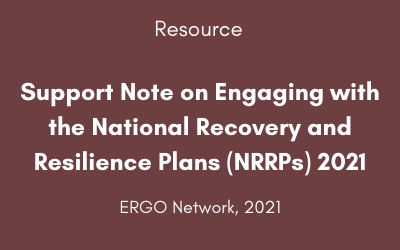Is the internet available and safe for Roma?
Throughout the last years, Safer Internet Day on 9 February has become an important event, addressing the issues of online safety and digital dignity. From cyberbullying to social networking to digital identity, each year Safer Internet Day aims to raise awareness of emerging online issues and current concerns. This year, ERGO Network is highlighting the issues of online safety and digital dignity for Roma.
Online safety for Roma
From an era in which individuals communicated their ideas mostly orally and only to small numbers of other people, we have moved on to an era in which people can make free use of a variety of channels for instant communication to a large audience. More and more people make use of online platforms not only to interact with each other, but also to share news. The detachment created by being enabled to write, without any obligation to reveal oneself directly, means that this new medium of virtual communication allows people to feel greater freedom in the way they express themselves1. Unfortunately, though, there is also a dark side to this system. Social media has become a fertile ground for antigypsyism, which frequently results in the use of insulting and offensive language towards Roma.
Antigypsyist hate speech has always been present in our societies. With the use of social media, however, the phenomenon has achieved a status of normalized online behavior, where Roma are targeted and become victims of cyberhate, which further develops into practices of hate crimes. Hate speech should not be perceived from the prism of an online insult; hate speech is connected to hate crimes, as it directly influences affecting citizens outside of the internet space. It results into violation of the rights of Roma as citizens, causing direct discrimination and threats, and in some cases result in offline violence or hate crimes.
As an example we can pinpoint the recent events in Bitola, North Macedonia towards the Roma community in September and October 2020. In this period hate speech against the Roma community on social networks was drastically intensified, which resulted in the occurrence of several cases of police brutality.2
Being aware of the issue of online antigypsyism3, ERGO Network through the PECAO project aims to counter antigypsyist hate speech online by working with young people, using a combination of peer education and monitoring in order to obtain two-fold results: Peer education to achieve a direct change in attitudes and actions of a high number of young people, and monitoring to contribute to better understanding and a more systemic change of policies through advocacy based on the results.
Digital dignity for Roma
Much has changed with the pandemic and many of us thought that living in the 21st century and with the available technologies adapting would be easy. However, the pandemic made the digital divide and social exclusion of vulnerable communities such as Roma even more visible.
According to the FRA study from 20164, over 40 % of Roma in the EU Member State Bulgaria cannot afford a private computer, smartphone or internet access. With the Covid-19 pandemic, many of these long-standing issues around discrimination, educational exclusion and limited access to new technologies have been brought forward.
Beside all the direct health risks, Covid-19 deepened the existing inequalities and made the questions of poverty and lack of access to proper educational services for Roma children more visible than ever. It made clear that care, respect and human dignity in the digital age for Roma have been forgotten or pushed aside. Digital literacy and access to utilities or technologies cause Roma to be left behind; as Roma with no access to electricity or the internet cannot connect, benefit from online education or online services.
The way forward
When it comes to creating a safer internet space for Roma and ensure digital dignity, ERGO Network believes that we need to work on:
-
- Higher awareness of journalists’ ethic commissions on the prevalence and impact of antigypsyist hate speech online, leading to improved self-regulation guidelines.
-
- Higher awareness of national equality bodies and other relevant state institutions on the prevalence and impact of antigypsyist hate speech online, leading to better programmes targeting antigypsyism.
-
- Stronger adherence by IT companies to the Code of Conduct on countering online hate speech.
-
- Better data collection on hate crime and hate speech disaggregated by ethnicity and gender to allow analysis of trends by member states.
-
- Stronger condemnation of antigypsyist hate speech in the public discourse.
-
- More positive narratives promoted by young people online to counter antigypsyist hate speech.
-
- Reducing the digital divide by investing in access to utilities and technologies, thus preventing the exclusion of Roma from the internet space, as well as by creating digital support and literacy programs.
1� Thirty years of research into hate speech: topics of interest and their evolution: Alice Tontodimamma, Eugenia Nissi, Annalina Sarra & Lara Fontanella
2� Hate speech in social media and the impact on the Roma community: Romalitico, Marija Sulejmanova





